We launched Top Ten Books because we had to know: Which books do our favorite authors deem the best ever written? When they gave us the answer we wanted more: Why do these particular titles mean so much to them? So we asked some of ‘em to write a short appreciation of one of their picks. A.L. Kennedy, Stephen King, Margot Livesey, Lydia Millet and Tom Wolfe are among the writers who expressed their admiration for works that range from uber-classics such as the Bible to obscure gems including Red the Fiend by Gilbert Sorrentino. The result is a wealth of titles with personalized recommendations from leading writers.
Over the next few months we will be highlighting these appreciations so that we readers can better understand why these works matter to those whose books matter so much to us. Check back to our “Featured List” tab every Monday for a new appreciation from one of our extraordinary contributors. And if you miss a week don’t despair – we’ll add the entries to this page after they’ve run.
Week Thirteen
Appreciation of Jacques Roumain’s Masters of the Dew by Edwidge Danticat
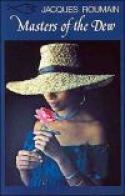 Haitian writer and activist Jacques Roumain (1907-44) straddled, and fused, the worlds of politics and art during his relatively short life. The grandson of a former president, he was raised in comfort and educated abroad, including in Switzerland, Spain (where he developed an interest in bullfighting), Germany and France. But his youth was also shaped by Haiti’s subjugation during its long occupation by the United States (1915-34). This crisis, along with his concerns about race and threats to Haiti’s traditional culture, led Roumain to embrace communism as well as a political and culture movement called Negritude.
Haitian writer and activist Jacques Roumain (1907-44) straddled, and fused, the worlds of politics and art during his relatively short life. The grandson of a former president, he was raised in comfort and educated abroad, including in Switzerland, Spain (where he developed an interest in bullfighting), Germany and France. But his youth was also shaped by Haiti’s subjugation during its long occupation by the United States (1915-34). This crisis, along with his concerns about race and threats to Haiti’s traditional culture, led Roumain to embrace communism as well as a political and culture movement called Negritude.
Week Twelve
Appreciation of François Rabelais’ Gargantua and Pantagruel by Fred Chappell
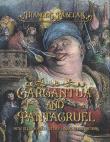 Many people have written books. Only a precious few delivered their signature subject matter with such pronounced and memorable style that their name became a word:
Many people have written books. Only a precious few delivered their signature subject matter with such pronounced and memorable style that their name became a word:
Rabelaisian, adjective
1: of, relating to, or characteristic of François Rabelais or his works
2: marked by gross robust humor, extravagance of caricature, or bold naturalism
synonyms: ribald, racy, bawdy, vulgar, coarse, earthy, risqué, lewd, blue, spicy, exuberant, uninhibited, vigorous, lively, satirical, parodic, irreverent, disrespectful, raunchy.
Week Eleven
Appreciation of Karl Philipp Moritz’s Anton Reiser by Charles Palliser
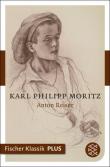 Nowadays, many writers follow a straight line—an elite education, MFA degree and publication. The German author Karl Phillip Moritz (1756-93) had plenty of schooling before literary success, but his life was jagged line. Born poor, he received just a smidgen of formal education before he was apprenticed to a hatmaker at age 12. But he clearly had a sharp mind – and also a troubled one that would haunt his days - and patrons financed his study of theology.
Nowadays, many writers follow a straight line—an elite education, MFA degree and publication. The German author Karl Phillip Moritz (1756-93) had plenty of schooling before literary success, but his life was jagged line. Born poor, he received just a smidgen of formal education before he was apprenticed to a hatmaker at age 12. But he clearly had a sharp mind – and also a troubled one that would haunt his days - and patrons financed his study of theology.
Week Ten
Appreciation of Joaquim Maria Machado de Assis’s Dom Casmurro by Michael Griffith
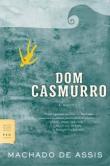 Joaquim Maria Machado de Assis is widely considered Brazil’s Shakespeare. The critic Harold Bloom included him on his list of the 100 greatest literary geniuses – alongside Dante, Cervantes and, of course, the Sweet Swan of Avon. Through innovative novels, poems, short stories and plays, the 19th-century writer (1839-1908) spun compelling tales that pierced the veil between the imagination and objective reality. Some critics have described his work as Romantic Realism.
Joaquim Maria Machado de Assis is widely considered Brazil’s Shakespeare. The critic Harold Bloom included him on his list of the 100 greatest literary geniuses – alongside Dante, Cervantes and, of course, the Sweet Swan of Avon. Through innovative novels, poems, short stories and plays, the 19th-century writer (1839-1908) spun compelling tales that pierced the veil between the imagination and objective reality. Some critics have described his work as Romantic Realism.
Week Nine
Appreciation of The Golden Argosy by Stephen King
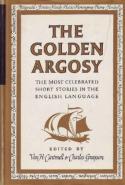 Stephen King is a master of mystery and suspense. So of course his Top Ten list starts with a big surprise: a little noted and long out-of-print short story anthology. The Golden Argosy: The Most Celebrated Short Stories in the English Language was one of innumerable works published during the 20th century that thought sought to make it easier for busy, middle class Americans to access literature. Back before the yoga boom, many people considered reading the path to enlightenment.
Stephen King is a master of mystery and suspense. So of course his Top Ten list starts with a big surprise: a little noted and long out-of-print short story anthology. The Golden Argosy: The Most Celebrated Short Stories in the English Language was one of innumerable works published during the 20th century that thought sought to make it easier for busy, middle class Americans to access literature. Back before the yoga boom, many people considered reading the path to enlightenment.
Week Eight
Appreciation of Italo Calvino's The Baron of the Trees by Daniel Wallace
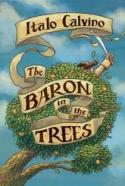 An armchair psychiatrist might suggest the Italian author Italo Calvino’s career was a long and wondrous exercise in rebellion against his parents. Regarded as a master of magical realism, Calvino (1923-1985) was reared by two staunch empiricists. Both his parents were botanists who encouraged free-thinking, fiercely rejected religion and were deeply committed to seeing the world as it was.
An armchair psychiatrist might suggest the Italian author Italo Calvino’s career was a long and wondrous exercise in rebellion against his parents. Regarded as a master of magical realism, Calvino (1923-1985) was reared by two staunch empiricists. Both his parents were botanists who encouraged free-thinking, fiercely rejected religion and were deeply committed to seeing the world as it was.
Week Seven
Appreciation of the Stories of Eudora Welty by Louis D. Rubin Jr.
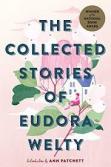 Storytelling imbues Southern life. The great Mississippi writer Eudora Welty (1909-2001) highlighted this when a Paris Review interviewer asked her in 1972 if she was an eavesdropper:
Storytelling imbues Southern life. The great Mississippi writer Eudora Welty (1909-2001) highlighted this when a Paris Review interviewer asked her in 1972 if she was an eavesdropper:
“I’m not as much as I used to be, or would like to be, because I don’t hear as well as I used to, or there’s too much other noise everywhere. But I’ve heard some wonderful remarks. Well, in the South, everybody stays busy talking all the time—they’re not sorry for you to overhear their tales. I don’t feel in helping myself I ever did anything underhanded. I was helping out.”
Week Six
Appreciation of Stendhal’s The Life of Henri Brulard by William Boyd
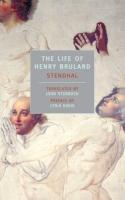 He was a man of a hundred names, including "Don phlegm," "Giorgio Vasari," "William Crocodile," "Poverino," "Baron de Cutendre," "Louis Alexandre Bombet" and "Anastasius Serpière." But he is forever remembered for just one: Stendhal. A further irony: the novelist christened in France in 1783 as Marie-Henri Beyle, was not a fantasist but a realist. His two most famous works, The Red and the Black (1830) and The Charterhouse of Parma (1839), are known, among other things, for their acute psychological and social insight.
He was a man of a hundred names, including "Don phlegm," "Giorgio Vasari," "William Crocodile," "Poverino," "Baron de Cutendre," "Louis Alexandre Bombet" and "Anastasius Serpière." But he is forever remembered for just one: Stendhal. A further irony: the novelist christened in France in 1783 as Marie-Henri Beyle, was not a fantasist but a realist. His two most famous works, The Red and the Black (1830) and The Charterhouse of Parma (1839), are known, among other things, for their acute psychological and social insight.
Week Five
Appreciation of Heinrich von Kleist’s The Marquise of O — and Other Stories by Paula Fox
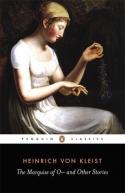 In 1811, the German writer Heinrich von Kleist shot the woman he loved and then himself in a murder suicide pact. His beloved Henriette Vogel was dying of uterine cancer and Von Kleist, though just 34, had long questioned the purpose of life. In his final letter, to his sister, he wrote: “The truth is, nothing on earth can help me. And now good-bye: may Heaven send you a death even half equal to mine in joy and unutterable bliss: that is the most heart-felt and profoundest wish that I can think of for you.”
In 1811, the German writer Heinrich von Kleist shot the woman he loved and then himself in a murder suicide pact. His beloved Henriette Vogel was dying of uterine cancer and Von Kleist, though just 34, had long questioned the purpose of life. In his final letter, to his sister, he wrote: “The truth is, nothing on earth can help me. And now good-bye: may Heaven send you a death even half equal to mine in joy and unutterable bliss: that is the most heart-felt and profoundest wish that I can think of for you.”
Week Four
Appreciation of Kobo Abe’s The Woman in the Dunes by Kathryn Harrison
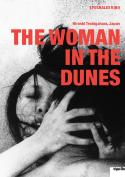 One day in August a man disappeared. The man was an entomologist and had set out into the desert with a canteen of water and a pack filled with the tools he used to collect specimens. It was his hope to discover an as yet unknown species of insect that lived in the sand dunes. Were he to find one, then he would be promised a kind of immortality: his name would be recorded and forever linked to the taxonomic identification of the bug—his bug.
One day in August a man disappeared. The man was an entomologist and had set out into the desert with a canteen of water and a pack filled with the tools he used to collect specimens. It was his hope to discover an as yet unknown species of insect that lived in the sand dunes. Were he to find one, then he would be promised a kind of immortality: his name would be recorded and forever linked to the taxonomic identification of the bug—his bug.
Week Three
Appreciation of Georges Perec’s Life: A User’s Manual by Arthur Phillips
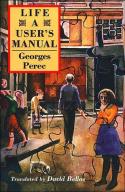 Try writing a paragraph without using an “e.” I’ll wait. It’s hard, right? Now wrap your mind around the difficulty of fashioning a full book without it! The French writer Georges Perec accomplished that feat in his 1969 novel, A Void. The brilliantly experimental writer followed that up with a novella, The Exeter Ghost (1972) in which every word has “e” as its vowel.
Try writing a paragraph without using an “e.” I’ll wait. It’s hard, right? Now wrap your mind around the difficulty of fashioning a full book without it! The French writer Georges Perec accomplished that feat in his 1969 novel, A Void. The brilliantly experimental writer followed that up with a novella, The Exeter Ghost (1972) in which every word has “e” as its vowel.
Week Two
Appreciation of Flann O’Brien’s The Third Policeman by A. L. Kennedy
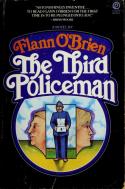 The Third Policeman is that rare and lovely thing —a truly hallucinatory novel, shot through with fierce logic and intellectual rigor. It is a lyrical, amoral, funny nightmare: the most disciplined and disturbing product of an always interesting writer. Our protagonist is “the poor misfortunate bastard”—a drinker, philosopher, and obsessive bibliophile. His sins grow with him, making a logical progression from book theft to burglary and murder —all this against a heightened version of poor, rural Ireland: a setting layered with absurd but weirdly recognizable detail. He then stumbles into a potentially fatal alternative reality: a haunting, teasing Irish countryside of parlors and winding roads from which it seems impossible to return.
The Third Policeman is that rare and lovely thing —a truly hallucinatory novel, shot through with fierce logic and intellectual rigor. It is a lyrical, amoral, funny nightmare: the most disciplined and disturbing product of an always interesting writer. Our protagonist is “the poor misfortunate bastard”—a drinker, philosopher, and obsessive bibliophile. His sins grow with him, making a logical progression from book theft to burglary and murder —all this against a heightened version of poor, rural Ireland: a setting layered with absurd but weirdly recognizable detail. He then stumbles into a potentially fatal alternative reality: a haunting, teasing Irish countryside of parlors and winding roads from which it seems impossible to return.
Beneath the music of O’Brien’s prose there is always a savage understanding of our failings, the pressures of poverty, greed, and fear. And there is always the dark humor that both excuses and condemns us. Our hero (who develops an entirely separate soul, called Joe) drifts into a weird landscape of jovially menacing policemen (who may or not may not be bicycles) and of inexplicable objects and mechanisms that operate beneath nature’s skin. His imprisonment and threatened execution seem even more troubling because they are nonsensical, perhaps even kind. Slowly it becomes clear that, among other things, this novel is about hell —a much-deserved, amusing, irrational, and entirely inescapable hell. Because, for O’Brien, hell is not only other people —it is ourselves.
Beyond this, The Third Policeman is genuinely indescribable: a book that holds you like a lovely and accusing dream. Read it and you’ll never forget it. Meet anyone else who has read it and you’ll find yourselves repeating sections of its melodious insanity within moments. Meet anyone who hasn’t read it and you’ll tell them they must. Which will be the truth.
Week One
Appreciation of Georges Simenon’s Maigret Detective Novels by Iain Pears
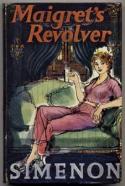 The Maigret series of detective stories, written by the Belgian Georges Simenon, are part of that rare breed of books —the mass-market entertainment that also works as great literature. Simenon is the master of atmosphere; with the lightest of touches he is able to conjure up Paris in the 1940s and 1950s, a seedy, largely poor city of shabby concierges and downtrodden traveling salesmen, of cheap hotels and squalid nightclubs, of hissing steam radiators and grubby shirt collars.
The Maigret series of detective stories, written by the Belgian Georges Simenon, are part of that rare breed of books —the mass-market entertainment that also works as great literature. Simenon is the master of atmosphere; with the lightest of touches he is able to conjure up Paris in the 1940s and 1950s, a seedy, largely poor city of shabby concierges and downtrodden traveling salesmen, of cheap hotels and squalid nightclubs, of hissing steam radiators and grubby shirt collars.
Much of the narrative is liquor-soaked —Maigret begins drinking after breakfast, interviews witnesses over brandy, and suspects over beer. Only rarely is a case concluded by unraveling clues; these are not whodunits. Rather, they are studies in character, of place, and of people. Simenon would have been a brilliant analyst. As often as not, the books end when Maigret (and through him, the reader) so understands the criminal that the suspect confesses all. Indeed, the reader is usually left sympathizing with the criminal, whose crime is reacting to limited choices and desperate circumstances.
The books are so compressed they could almost be short stories, but Simenon populates them with an extraordinary range of characters —the overweight, perpetually sweating Maigret, his eternally patient wife (more acute, in many ways, than her husband), his juniors, and the gallery of pimps and prostitutes, petty criminals, shopkeepers, bartenders, small tradesmen, and canal barge pilots who make up his world. There is no reveling in the grime of the underworld; most of the characters dream of better things and live a life of disappointment. Out of their lives, Simenon created some of the most enduring and compelling works of the twentieth century.